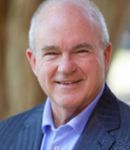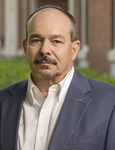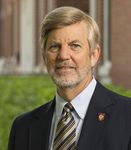SUMMER TERM 2021 (MASTER'S LEVEL) - ERSKINE ONLINE (MASTER'S LEVEL) - Erskine Seminary
←
→
Page content transcription
If your browser does not render page correctly, please read the page content below
SUMMER TERM 2021 (MASTER’S LEVEL)
ERSKINE ONLINE (MASTER’S LEVEL)
George M. Schwab, Sr., Professor of Old Testament
Email: schwab@erskine.edu
BI 502: Principles of Exegesis
This course introduces the student to the principles and practice of exegesis of the Old and
New Testaments and surveys the history of the texts and translations of the Bible, as well as the
ways the Old and New Testaments have been interpreted by the Church. Passages for exegetical
practice are selected from both Testaments.
OT 501: Old Testament I
This course surveys the history and literature of Israel to the end of the united kingdom. In
dealing with Israelite economic, social, political, cultural, and religious life, the Old Testament
is illumined by studies in archaeology, geography, and ancient Near Eastern texts. Introductory
issues such as canon, historical-critical approaches, and the authority of the Old Testament are
also treated.
OT 728: Joshua
This course examines the history, content, milieu, text, structure, and meaning of the book of
Joshua. Attention is given to its ancient historical settings and the light it sheds on the Gospel
of Jesus Christ.
R.J. Gore, Professor of Theology and Ministry / Dean of the Seminary (Acting)
Email: rgore@erskine.edu
ET 711: Christian Ethics
This course examines the nature and principles of Christian ethics and the application of these
principles to current social issues. Emphasis is given to the study of biblical morality.
ST 603: Systematic Theology III
This course concludes a systematic presentation of the Christian faith. Using biblical constructs,
historical developments, and confessional statements, students explore the doctrine of the Holy
Spirit and salvation, the doctrine of the church and sacraments, and the doctrine of last things.Christie Rogers-Larke, Research Professor of Christian Counseling Email: christie.larke@erskine.edu CC 501: Professional Orientation Studies that provide an understanding of professional roles and functions, professional goals and objectives, professional organizations and associations, professional history and trends, ethical and legal standards, professional preparation standards, and professional credentialing. Florica Saracut, Director of Institutional Effectiveness; Assistant Professor of Christian Education Email: saracut@erskine.edu CE 505: Christian Education (May 17 - July 10) This basic course in Christian Education deals with the theology and practice of educational ministry in the local church. Biblical and theological foundations for Christian education as a servant ministry for all of the local church’s life and mission are examined, and these foundations are developed into models for faithful and intentional educational ministry. Particular attention is given to the responsibilities and opportunities pastors and educators undertake as servant leaders in the church’s educational tasks and ministries, and to the spiritual formation of pastors and educators. Kelly Stultz, Research Professor of Sacred Music Email: stultz@erskine.edu SM 552: Sacred Music in Worship (June 21 - August 13) This course provides an introduction to the history of biblical worship practice in both the Old and New Testaments, and worship orders and traditions from the Reformation to modern practice. The course will explore the functions of the music worship leader and the roles of hymnody, song and music within the liturgy of Christian worship. David Smith, Adjunct Professor of Historical Theology Email: david.smith@erskine.edu ST 715: Westminster Standards This course considers the origin and convening of the Westminster Assembly. Students analyze the theology of the Assembly through a study of the Westminster Standards.
Dale Johnson, Professor of Church History Email: djohnson@erskine.edu CH 502: Reformation and Modern Church History This survey course covers the historical, spiritual, and institutional development of western Christianity from the Renaissance to the modern era. Students examine the Protestant reformers, the Counter Reformation, the Enlightenment, Pietism, and the development of Evangelicalism. John Paul Marr, Associate Professor of Divinity Email: jpmarr@erskine.edu PM 604: Christian Leadership & Church Administration (June 21 - August 13) This course is a study of Christian leadership as it relates to the Christian church. Emphasis is placed upon organizational dynamics, conflict management, spiritual formation, leadership skills, and management practices. Assessment of structures and individuals, problem-solving, and the guidance of the Holy Spirit are formulated in the context of ecclesiastical life cycles and polity. Michael Stewart, Research Professor of Chaplain Ministries Email: stewart@erskine.edu PM 610: Introduction to Chaplaincy (May 17 - July 10) This course is an introduction to the biblical-theological foundations of chaplain ministry and its history, key concepts, and unique place as a distinctive calling within the larger vocation of Minister of Word and Sacrament. Students analyze the unique contexts and callings of eight different chaplaincy sectors including corporate, military, health care, public safety, institutional, sports, educational, and crisis/disaster relief. John Panagiotou, Adjunct Professor of Greek and Early Church History Email: panagiotou@erskine.edu ST 728: Eastern Orthodoxy This course alerts students to the differences between the Eastern and Western Christian mindsets and the influence of those mindsets on the way each group approaches Scripture and Christian life. Using selections from appropriate primary sources, students study the teaching of the Eastern Orthodox Churches on the relation between Scripture and tradition and on God, humanity, and salvation. Students are encouraged both to learn from the insights of Eastern Christendom and to evaluate and critique Orthodox theology in light of Scripture.
You can also read



























































